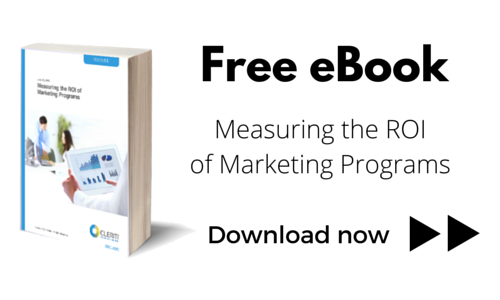- Oct 16, 2015
- By Sarah Tsai
- In Marketing Strategy and Planning
That's Gotta Hurt: How to Handle a Lead That Goes Cold


No matter how good you may be at attracting new business, there’s no such thing as a perfect lead generation strategy. It’s just not possible to convert 100 percent of your prospects into paying customers — naturally, at some point some of your leads are going to go cold. But, that doesn’t necessarily mean that those leads are gone for good. Here’s some advice on what to do with a cold lead that you want to warm back up.
When Good Leads Go Bad
Picture this: you’re working with a prospective customer, and things are going great. You’ve established a good rapport, you’re getting feedback and you can tell it’s just a matter of time before you seal the deal. And then, silence.
A cold lead is exactly what it sounds like. It’s a lead that was once warm, but eventually becomes disinterested in responding to your follow-up efforts. These cold leads affect anyone that has something to do with your sales process and lead generation strategy. However, the main difference between good salespeople and poor ones is that the poor ones take a cold lead at face value — they give up on the sale and move on. However, the really great salespeople understand the thought process behind cold leads and take action to get them interested in communicating again.
Bringing Warm Leads Back
When you’re presented with a newly cold lead, it’s important to remember that this was once a warm prospect who had significant interest in doing business with your company, and that interest could be revived. It’s up to you to figure out what happened and take the necessary action to remedy the lead.
Customized Communication
Heating up a newly cold lead might mean making some changes in your usual sales process because the same tactics aren’t going to work for everyone. It’s a good idea to consider all possibilities when you’re working with a lead that’s ready to walk. For instance, you might send cold leads a white paper that’s centered around the exact issue that’s holding them up. If you’re selling solar power set-ups for homes and your lead is worried about the up-front costs, you can send a statistics-filled white paper detailing precisely why an investment now will pay off big-time down the road.
Change It Up
Another tactic is modifying your means of communication. If you’ve done all of your normal communication with a lead and he or she is no longer answering your calls, try sending a follow-up email to touch base. If email isn’t working, send out a postcard or personalized letter through physical mail. The possibilities for keeping in touch with your leads are endless, so don’t be afraid to go outside the box every now and then, especially when trying to regain a lead’s trust.
If you’re still not having success with this lead, it’s probably a sign that they’re not ready to convert or are no longer interested. But that doesn’t mean you have to give up. Keep the lead in your CRM pipeline and continue to send them relevant information because at some point, they may come around and become interested in what you have to offer. And since you’ve demonstrated your expertise for a long period of time, you’ll be first on their list when they’re ready to make a purchase.
The Importance of Troubleshooting
Cold leads may seem like isolated circumstances, but that’s not always the case. If you regularly experience a shift from warm to cold leads, it could indicate that there are major flaws in your sales process. Remember, although sales processes always look great on paper, they may not translate well to real-life situations. Maybe you’re being too pushy, or maybe you’re not being aggressive enough. Or, perhaps you’re simply going after prospects that aren’t truly qualified leads in the first place. In any case, it’s vital to learn from each cold-lead situation and consider how future sales prospects can be better nurtured.
It’s All Part of the Sales Process
Nobody wants to deal with a warm lead that goes cold, but it comes with the territory of sales. A good lead generation strategy will account for the possibility of cold leads, and it will also include many ways for you to bring those leads back from the dead. If your sales process includes actionable tactics you can turn to when leads stray from your typical conversion path, you’ll eventually experience more conversions and more revenue.





